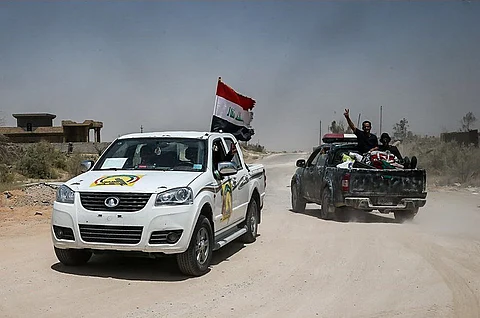

Negotiations are reportedly nearing completion for the release of Elizabeth Tsurkov, an Israeli-Russian dual citizen who was taken captive in Iraq in March 2023, according to reports in Arab media.
Tsurkov, a doctoral student at Princeton University, entered Iraq in January 2023 using her Russian passport, claiming to be conducting field research for her dissertation. She was taken into custody in Baghdad on March 21 after arranging a meeting with a member of Kataib Hezbollah after her Israeli citizenship was discovered.
Kataib Hezbollah did not confirm her detention until November 2023, when the group released a video showing Tsurkov in captivity.
Reports indicate that her release may be secured through a prisoner exchange involving the Iraqi government releasing seven detainees, including Iranian national Mohammad Reza Nouri. Nouri, an officer in Iran’s Islamic Revolutionary Guard Corps (IRGC), was sentenced to life in prison along with four Iraqis for the 2022 murder of American citizen Stephen Troell, who was shot and killed in Baghdad. Two additional individuals are also reportedly part of the proposed exchange.
The deal, however, remains incomplete and is reportedly contingent on the approval of the United States, given the charges against Nouri and the nature of his alleged involvement in attacks on American interests.
Kataib Hezbollah, a key faction within Iraq’s Popular Mobilization Forces (PMF), maintains strong ties to Iran and is a member of the self-described "Islamic Resistance in Iraq," a coalition of groups aiming to expel U.S. forces from the region. Between October 2023 and February 2024, the group—along with other factions—carried out repeated attacks on U.S. military bases in Iraq and Syria, citing support for Palestinians in Gaza.
These attacks left dozens of American soldiers injured and resulted in the deaths of six U.S. personnel, including three who were killed in a drone strike on the Al-Tanf base in Syria on January 28, 2024. U.S. retaliatory strikes followed. The frequency of these attacks declined significantly after February 2024 and ceased entirely by the end of the year.
If finalized, the deal could mark a rare instance of indirect cooperation between Iraq, Iran, and Western-aligned interests, potentially signaling a broader effort to deescalate tensions in the region.